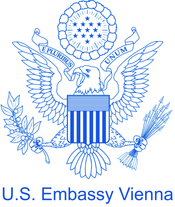An International Conference

(a cooperation between the Embassy of the United States at Vienna and the University of Vienna)
Amerika Haus, Vienna
October 1-3, 2014
Since the turn of the twenty-first century, the landscape of American television has decisively changed. The medium continues to be what Gary Edgerton has termed “a technology, an industry, an art form, and an institutional force” (The Columbia History of American Television, 2007), but its formats and generic conventions have been profoundly transformed in recent years, especially so in the arena of serial drama. Whereas seriality had been part and parcel of television entertainment since the 1940s—from Days of Our Lives and Peyton Place to Desperate Housewives—the diversity of the global market, the development of DVD and BluRay technologies for home viewing, and the synergies of television and the Internet have resulted in more innovative formats. In consequence—and in close associative ties with companies such as HBO and Netflix—the twenty-first century has witnessed the rise of what critics have called “Quality TV” (McCabe and Akass 2007; Rothemund 2012; Jahn-Sudmann and Starre 2013): Christopher Bigsby even speaks of a new “golden age of American television drama” (Viewing America: Twenty-First Century Television Drama, 2013).
This conference will contribute to the definition and demarcation of the new American “Quality TV” series while simultaneously casting a critical glance at their production-related, thematic, structural, and formal constellations. In addition to morally ambivalent protagonists, non-conventional narrative patterns, and an emphasis on visual aesthetics, the most successful serial formats of the recent decade are characterized by their transgressions of political, social, ethical, and representational boundaries. In the interest of a diagnostic approach to the contemporary American TV series, particular focus will be both on programs with explicitly political settings (such as The West Wing, Scandal, Veep, Homeland, The Newsroom, House of Cards) as well as on programs highlighting a more implicit politics of crime and law enforcement (e.g., Oz, The Sopranos, 24, The Wire, Breaking Bad, Dexter, The Americans, True Detective). What specific transgressions can be diagnosed in these series, and what significance do they have for our notions of history, politics, and justice? What do these series’ specific set-ups indicate about the future of American—or global—citizenship?
Keynote:
Gary R. Edgerton (Butler University):
"The Countdown to Y2KTV and the Arrival of the New Serialists"
Gary Edgerton, Professor and Dean of the College of Communication at Butler University, is the author of eleven books and more than 80 essays in various fields of media and cultural studies. Among his publications are some of the most influential works in contemporary research on American television, including The Columbia History of American Television (2007), The Essential HBO Reader (2008), Mad Men: Dream Come True TV (2011), and The Sopranos (2013). He is also the recipient of the American Culture Association’s John G. Cawelti Award for Outstanding Research as well as several Distinguished Teaching Awards. In addition, Professor Edgerton is the Co-Executive Editor of the Journal of Popular Film and Television, General Editor for the “Essential Reader Series in Contemporary Media and Culture” from the University Press of Kentucky, and an editorial board member of seven other scholarly journals and another book series.
Conference Organizers:
Univ.-Prof. Dr. Birgit Däwes and her team
Mag. Karin Schmid-Gerlich
Venue: Amerika Haus, Vienna
Department of English & American Studies
Spitalgasse 2-4, Hof 8.3
1090 Vienna
T: +43-1-4277-42415




